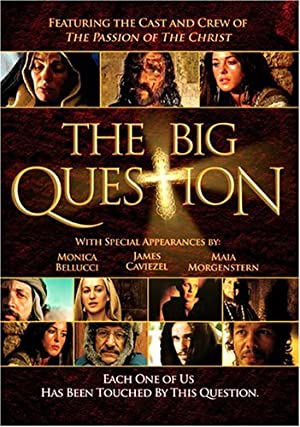
The Big Question (2004)
Rated: PG-13Seen78What are the first existential queries that lead us to question the absolute and consult teachers, parents, priests or older siblings? "The Big Question" is based on an idea that is very simple yet rather complex: it poses extremely direct questions to a large and varied group of people regarding their own intimate perception of the divine. The peculiar microcosm, a surprising sociological container, is the backdrop where these inquiries take place; it acutally is a 'non-place' par excellence: the set of 'The Passion of the Christ' by Mel Gibson. The documentary, that has nothing to do with a 'making of', reads as a singular notebook of laic catechism, and its essence is the cultural, religious, social and geographical variety of those interviewed. The topics suggested through the assorted questions are confronted by a subtle, sometimes humorous research, which touches everyone: believers, atheists, agnostics, or the undecided. The allegoric and hieratic soul of "The Big Question" is a white dog that passes through valleys, mountains and ghost towns of southern Italy, during a voyage more oneiric than realistic.
- Francesco Cabras